Baghdadi dead, will IS revive?
(Baonghean) - The United States and President Donald Trump can be proud after eliminating IS terrorist leader Baghdadi, but just like when President Barack Obama's administration eliminated al-Qaeda leader Osama bin Laden, this event does not put an end to the war on terrorism.
Some praise, others criticize
“The world’s number one terrorist leader is dead,” US President Donald Trump’s sudden announcement broadcast live from the White House on the morning of October 27 (local time) surprised many US lawmakers.
It was a secret operation directed by Trump himself, and he did not even inform Congress about the attack. “He ran to the end of the tunnel, and our dogs were chasing him. He detonated the vest, killing himself and three of his dogs. His body blew up into pieces.”
| Close-up of the lair where IS leader Baghdadi was killed by US special forces |
The way Mr. Trump described the details of the operation and the death of al-Baghdadi shows that he placed special emphasis on this military operation, which he praised as a much greater achievement than the operation that killed Al Qaeda leader Osama bin Laden by former President Barack Obama.
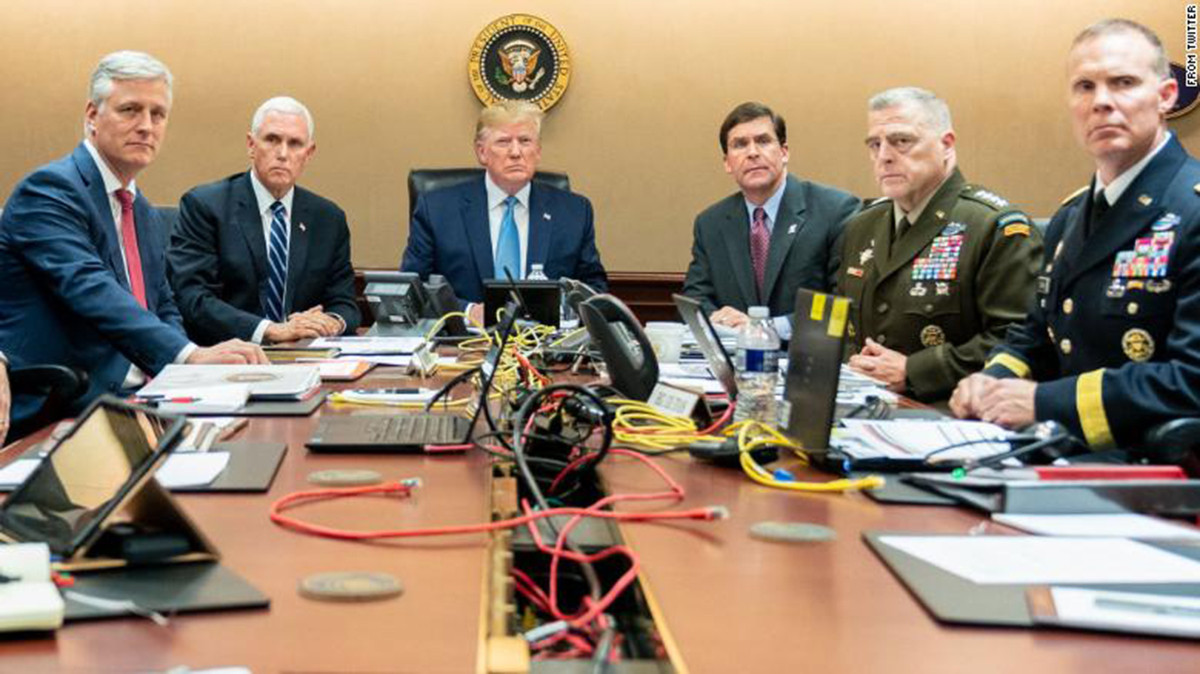 |
| President Trump sits with administration and military officials in the Situation Room to monitor the operation to kill the IS leader. Photo: White House |
Al-Baghdadi's death carries great symbolic significance, a decisive blow to the already weakened terrorist group.
Al-Baghdadi has rarely appeared since declaring the establishment of the self-proclaimed Islamic State in 2014, but this name has become an obsession for people in Middle Eastern countries and the world with their horrifying crimes.
He was the brains behind the notoriously brutal attacks that transformed the group into an extremist organization with unprecedented power and territory. The emergence of IS has caused the largest migration since World War II and a noisy war to stop it.
Thousands of people have died, and there have been numerous daring attacks around the world bearing the IS logo. So Al-Baghdadi’s death carries great symbolic significance, a decisive blow to the already weakened terrorist group.
For the US, the destruction of al-Baghdadi can be considered the greatest success of its military after launching a campaign in Syria and Iraq.
The death of al-Baghdadi could not have come at a better time for President Donald Trump: giving him an advantage in the race for re-election next year, while "diminishing the focus" on the impeachment charges against him as well as criticism of the White House owner's decision to withdraw troops from Syria, abandoning the Kurds.
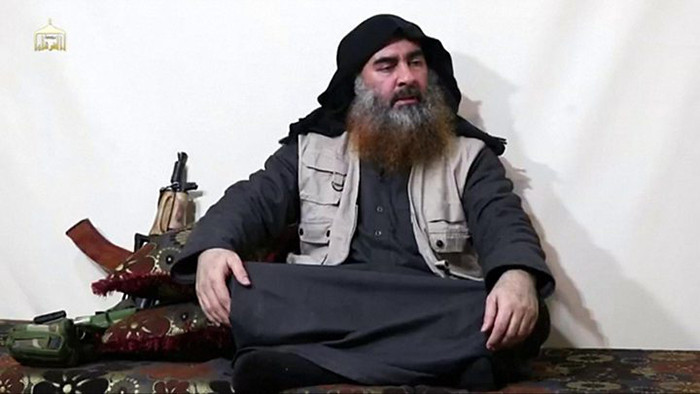 |
| Image of Abu Bakr al-Baghdadi appears in an IS video on April 29, 2019. Photo: AFP |
However, this information does not seem to have the political impact that many predicted. While President Donald Trump has praised the campaign, most Democratic lawmakers have expressed discomfort with the White House's "silent attack".
Critics say President Trump broke with tradition by not briefing top US congressional leaders about the raid.
“The House should be informed about this raid, the management and the overall strategy of the area, not the Russians,” House Speaker Nancy Pelosi said in a statement praising the military, accompanied by a less than flattering comment.
Some other opinions also did not appreciate the IS leader's destruction and said that this was just a "formal achievement" while in reality, Mr. Trump did not have any new strategy for the Middle East region.
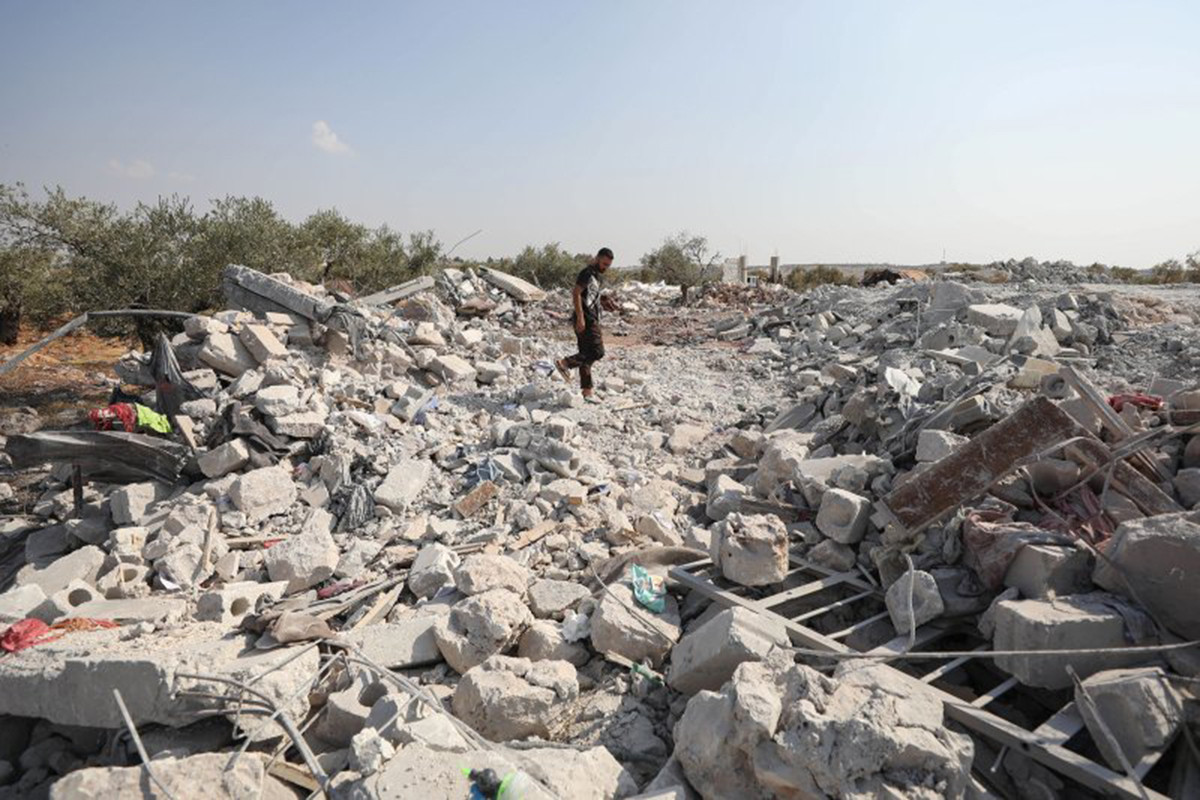 |
| The area believed to be where the IS leader was killed. Photo AFP |
THERE ARE STILL CONCERNS
Around the world, the news of the IS leader's death has received many positive responses from countries, but along with that is concern about the revival of this jihadist force.
That concern is well-founded because Baghdadi’s death did not leave IS in a “headless” situation. IS immediately appointed Abdullah Qardash, also known as Hajji Abdullah al-Afari, to succeed al-Baghdadi as its new leader.
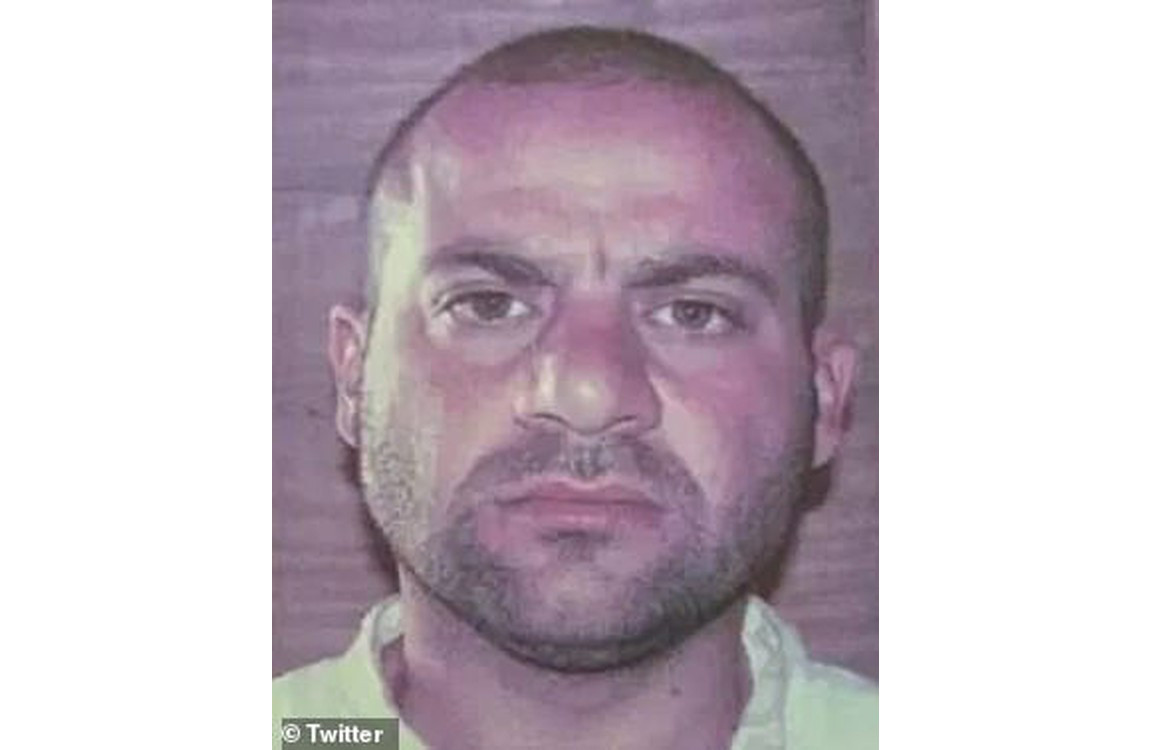 |
| IS appoints Abdullah Qardash, also known as Hajji Abdullah al-Afari, as its new leader. Photo: Newsweek |
This shows that the force had prepared in advance. Newsweek quoted an unnamed US intelligence official as saying that before his death, Baghdadi's role as leader of the IS organization was only symbolic. "All Baghdadi did was say 'Yes' or 'No' and had nothing to do with planning."
The death of the IS leader is likely to provoke acts of revenge in the region as well as in European countries, or the US.
No one, not even the US government or its critics, believes that the so-called Islamic State has been eliminated just because al-Baghdadi is dead. There have even been warnings that the IS leader’s death could provoke acts of revenge in the region, as well as in European countries, or the US.
Recently, IS has stopped showing off its power through shocking attacks, instead switching to guerrilla tactics with small-scale attacks in Iraq, Syria, and Afghanistan. They could completely use this "trick" to retaliate against the US and other countries in the anti-IS coalition.
What is even more worrying is that the extremist ideology of this organization is still spreading and has great influence. Foreign fighters blend in with the flow of refugees and return to European countries, becoming extremely dangerous "lone wolves".
Many young people who have been radicalized in many countries, including Southeast Asia, are also willing to "support" "jihadists" at the call of IS.
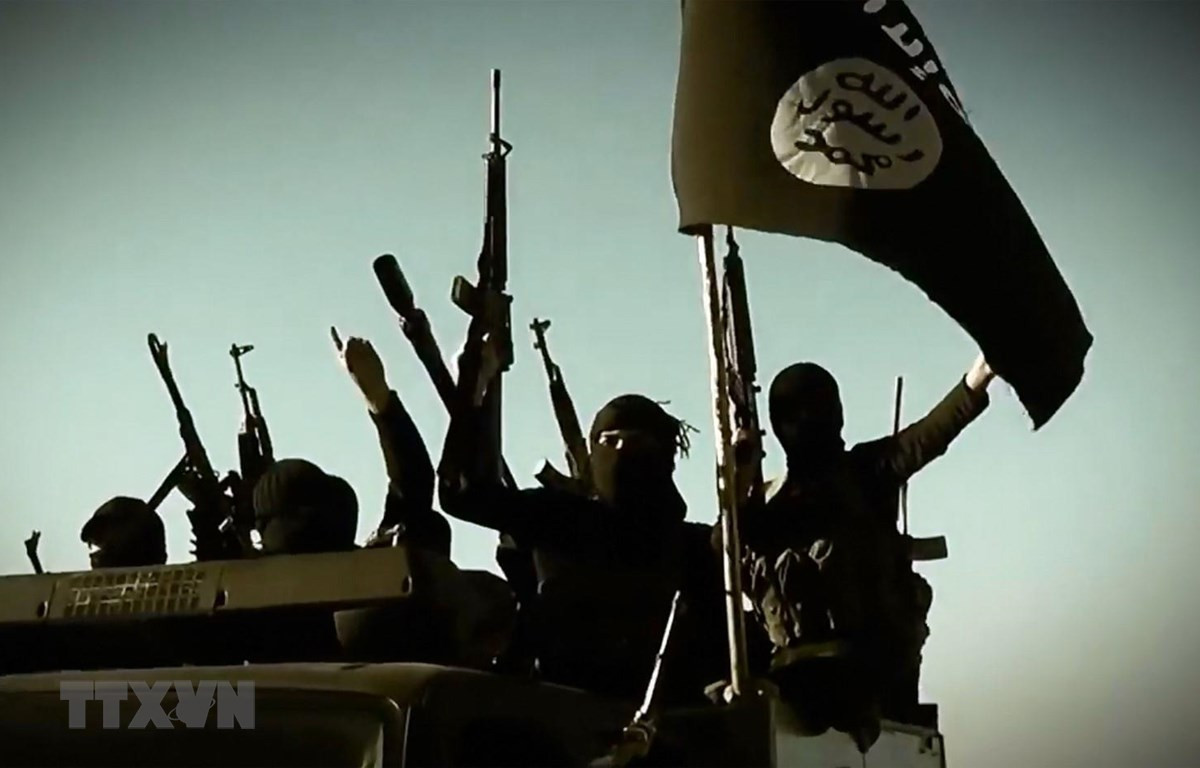 |
| IS gunmen in Anbar province, Iraq, March 17, 2014. Photo: AFP/TTXVN |
The death of Al-Queda Bin-laden in 2011 and the emergence of IS in 2014 clearly showed that extremist forces can easily “transform” and rise up when given the opportunity. Many countries in the Middle East and North Africa are still in a state of instability and poverty, which is a good opportunity for IS to revive.
In addition, the US withdrawal from Syria has also weakened the anti-IS efforts on the ground. The 18,000 IS fighters still active in Syria and Iraq (according to the US Department of Defense) could still pose a major threat to regional security under the command of the new leader Al-Afari.
These things show that the "ghost" of IS and other terrorist forces still haunts even though the lands held by IS have been liberated and the IS leader has been destroyed.
As French President Emmanuel Macron said, al-Baghdadi's death was a heavy blow to IS, but it was only part of the fight against terrorism and the international community needed to continue to coordinate to defeat this extremist force.
